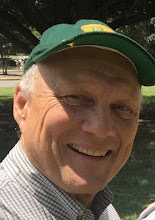
City Hall at Sea Level
By
First Baptist New
The metal detectors were beeping as I paused to survey the tent city of
I was sitting in the city council chambers waiting to invoke the Deity on behalf of us all when a hundred chanting advocates of public housing marched in with signs protesting the coming demolitions. I shook hands with my friend, Marshall Truehill, who escaped arrest but cannot escape his burden for people on the fringes.
This influx of the city’s poorer residents caused me to change my prayer. I had intended to remind God and the City Council that the poor have little opportunity to speak to decision-makers. My contemplations waiting on a quorum were more about the thick blanket of poverty and homelessness draped over the city’s center of power.
Amid but not affiliated with the chanting protesters, Jefferson Parish President Aaron Broussard walked into the room accompanied by two Jefferson Parish councilmen. Their presence lent support to a plan for pumping rain water to the river from the
Where but here do ordinary citizens
Regional concerns like flood control still overlap enough that no single local political entity can get arms around it all. Thus emerge groups like Pump to the River and Women of the Storm. Concerned citizens pull together coalitions of public bodies to prompt discussion and effect change, supplementing and sometimes overriding weak public institutions still floundering in the flood.
Citizenship in
But the larger context is still circus-like. Groups march in and out. Entourages arrive and depart. The powerful rub elbows with the poor. And everyone chases a vision of something better in the city that care has not forgotten.
This most recent council meeting featured a strange mixture of passions and problems that could only have collided in our post-Katrina world. The tenured and storm-weary citizenry, daily inundated by talk of levees, runoff, inadequate housing, and coastal restoration, easily lose sight of the unique and historic nature of our discussions and struggles.
We were always the most interesting city in
We continue our vigil below sea level, reinforcing the levied perimeter, re-establishing the grid of human support, and praying for victory over tidal waves.




No comments:
Post a Comment